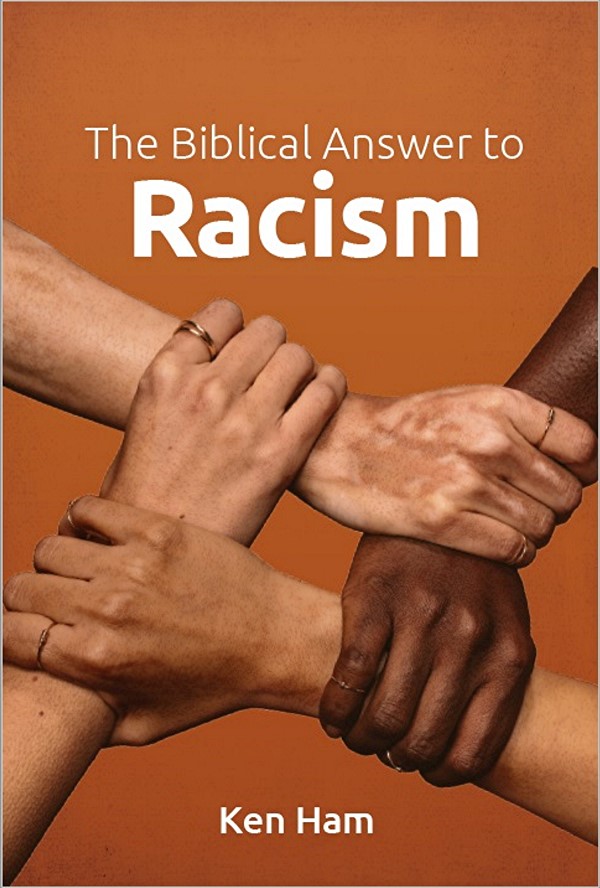Ken Ham, AIG statement opposing racism

The other day I received an e-mail from AIG, advertising a number of books that appear to be about racism, including, in particular, The Biblical Answer to Racism, by Ken Ham. The book was offered to me for $0.49, which was waived if I inserted a certain code. I found that I already had an account with AIG, so “buying” the book was trivial, and it came essentially instantaneously as a pdf.
The biblical answer to racism, I am happy to report, is that there is no such thing as race. As Mr. Ham writes,
All human beings in the world today, however, are classified as Homo sapiens sapiens. Scientists today admit that, biologically, there really is only one race of humans. For instance, a scientist at the [American Association for the?] Advancement of Science Convention in Atlanta stated, “Race is a social construct derived mainly from perceptions conditioned by events of recorded history, and it has no basic biological reality.” This person went on to say, “Curiously enough, the idea comes very close to being of American manufacture.” [Italics in original.]
This, after the mandatory attack on evolution, quoting Stephen Jay Gould out of context, and claiming that On the Origin of Species is an inherently racist document, because many people who followed it were racists. The argument, which is kind of irrelevant, is close to the genetic fallacy, but we need not get into that.
The Biblical Answer to Racism is essentially a pamphlet, 39 pages long. It has a fairly clear and I assume correct description of how different varieties of melanin make us come in different shades. (I had no idea that blue eyes were the result of light scattering rather than pigment, which perhaps accounts for why my eyes appear as different hues in different environments.) It argues that we should not use the term race at all and opts instead for people group, perhaps because ethnic group has already been taken. Mr. Ham also takes pains to debunk the argument that his biblical namesake, Ham, the putative ancestor of the black people groups, was cursed (Gen. 9:18-27) – an argument that has been used in the United States to justify slavery.
“The dispersion at Babel” and its consequences are a significant fraction of the pamphlet. Mr. Ham “explains” that after the dispersion at Babel, people groups, um, evolved different features, such as skin color. Skin color, however, is not to be confused with race, and he has noted earlier that differences within people groups greatly exceed differences among people groups. We are, after all, all descended from Adam. Therefore, so-called interracial marriage is not prohibited. Intermarriage between Christians and non-Christians, however, is another matter; non-Christians are “dead in trespasses and sin” (I have no idea what that means, but it does not sound complimentary).
Mr. Ham’s bottom line or lines seem to be the quotation above and the following:
1. There is no biblical justification for claiming that people from different so-called races (best described as people groups) should not marry.
2. The biblical basis for marriage makes it clear that a Christian should marry only a Christian.
When Christians legalistically impose nonbiblical ideas, such as no interracial marriage, onto their culture, they are helping to perpetuate prejudices that have often arisen from evolutionary influences. If we are really honest, in countries like America, the main reason for Christians being against interracial marriage is, in most instances, really because of skin color.
The church could greatly relieve the tensions over racism (particularly in countries like America), if only the leaders would teach biblical truths about our shared ancestry ....
Mr. Ham is not free of prejudice against non-Christians. Nevertheless, I have to give him a lot of credit for producing this document, because I have a suspicion that a great many of his right-wing, evangelical Christian followers may be inherently racists (birthers, for example), and Mr. Ham has done us all a great service by opposing racism in terms that they can perhaps appreciate.
